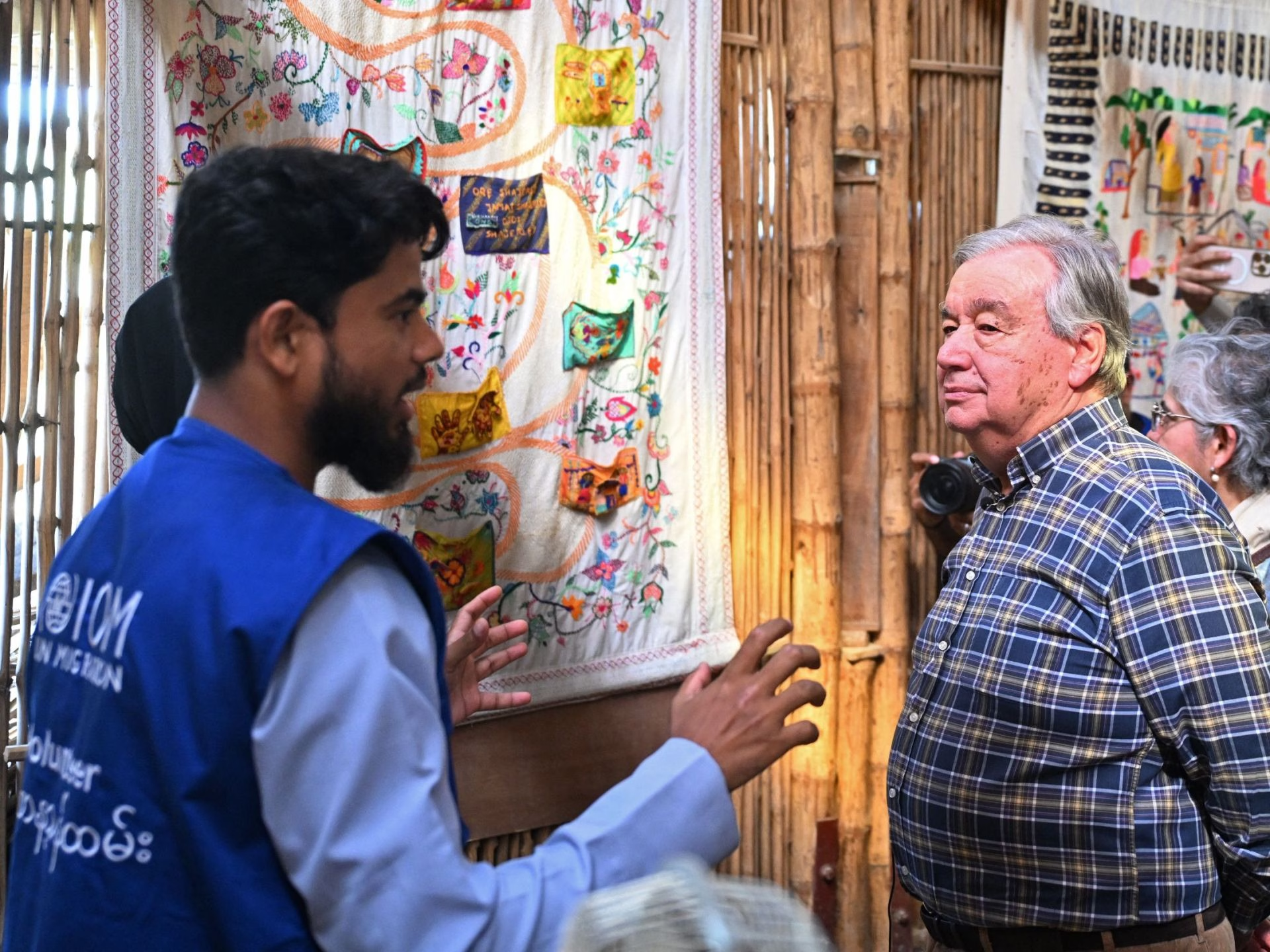Secretary-General Antonio Guterres visited Rohingya refugees in Bangladesh as they face potential reductions in their food supplies next month, further worsening their living situation in the world’s largest refugee camp.
Guterres’s visit to the border district is particularly crucial due to the WFP’s announcement that it may need to reduce Rohingya food vouchers from $12.50 to $6 per month starting in April, due to insufficient funding. This Nordics waste a crater about malnutrition and starvation in the already overcrowded camps.
In 2024, the United States provided $4.4bn of the WFP’s $9.7bn budget, yet the funding for international aid has drastically decreased under President Donald Trump, impacting the USA’s contribution as a leading donor to Rohingya refugee aid.
UNICEF has reported alarming levels of malnutrition among children in the camps, with a 27% increase in admissions for severe malnutrition treatment in February compared to the previous year.
‘Facing Starvation’
“The current food supplies are inadequate, but if halved, we will face starvation,” stated Mohammed Sabir, a 31-year-old refugee from Myanmar who has resided in a Cox’s Bazar camp since 2017.
Sabir, a father of five, expressed his helplessness, stating, “We’re prohibited from working here. My children’s welfare is my constant concern. What will we feed them?”
Bangladesh’s interim government, which came to power in August following widespread protests and the ousting of former Prime Minister Sheikh Hasina, is looking to Guterres’s visit to increase global awareness and mobilize aid for both refugees and citizens.
Over a million Rohingya, an ostracized Muslim minority fleeing persecution in neighboring Myanmar, mainly during 2016 and 2017, have been sheltered in Bangladesh, particularly in the Cox’s Bazar region. Their access to jobs or education remains limited.








